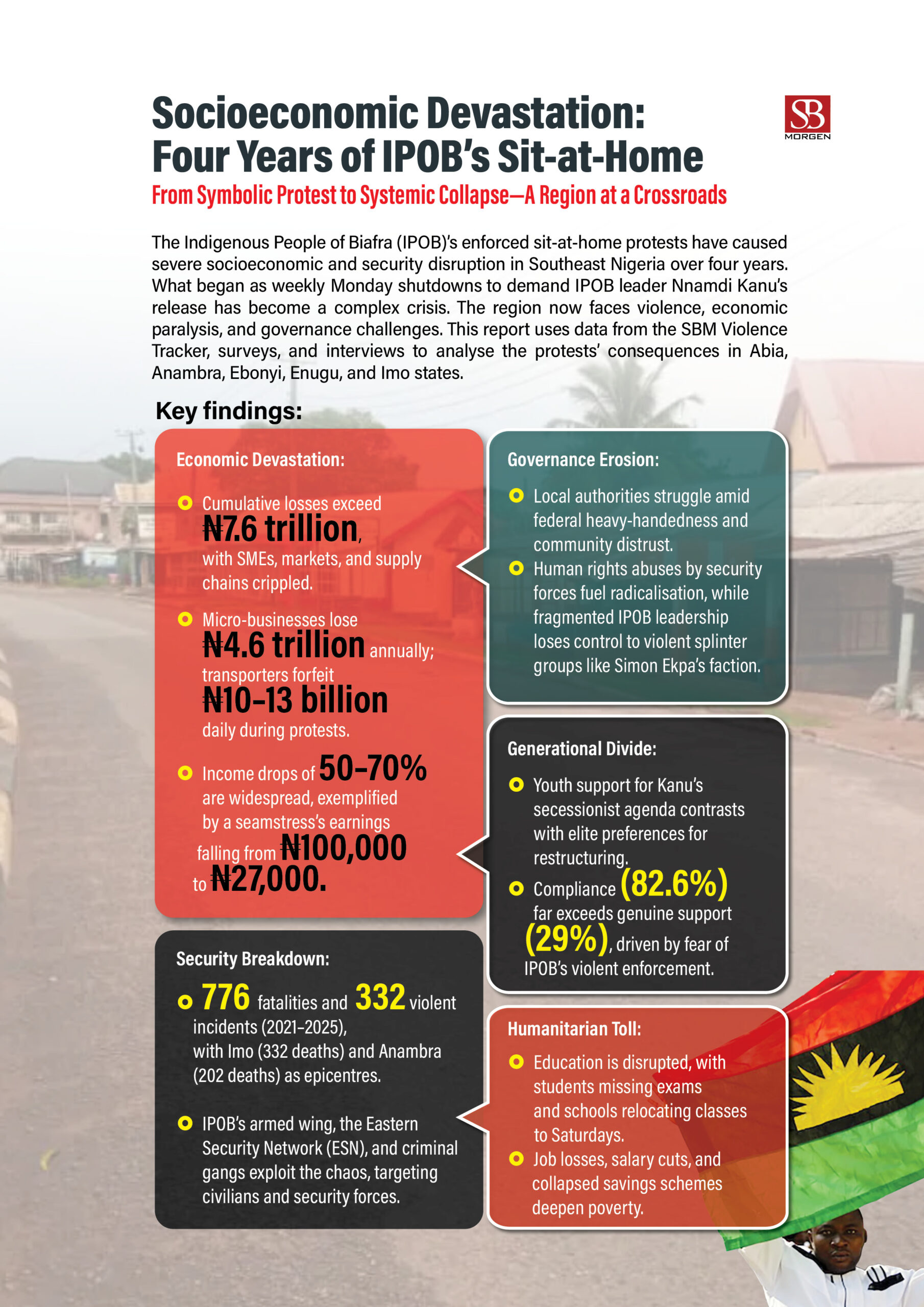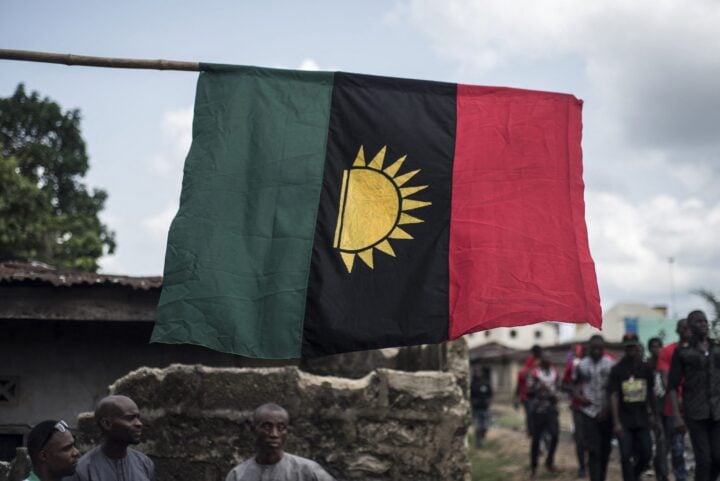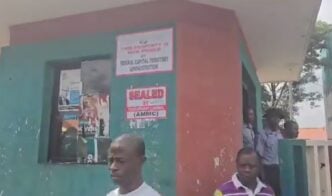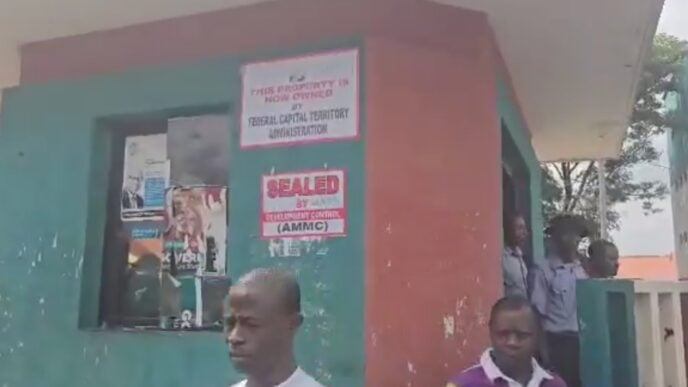IPOB flag
By August 2025, Nigeria’s Southeast will have navigated four fraught years under the Indigenous People of Biafra’s (IPOB) sit-at-home order. A sobering May 2025 SBM Intelligence report, “Four Years of Disruption: Unmasking the Impact of IPOB’s Sit-at-Home Order in Southeast Nigeria,” meticulously charts how this weekly protest, initially for Nnamdi Kanu’s release, has devolved into a pervasive climate of fear, economic stagnation, and violence.
The SBM report details how these Monday shutdowns, stemming from historical grievances and Kanu’s 2021 re-arrest, have severely impacted the region. For me, as a researcher covering these complex issues, the atmosphere of menace became intensely personal. It was after Nnamdi Kanu himself, in a YouTube broadcast, discussed my work and me in a deeply critical and alarming manner – part of a broader tirade in the video where he labelled journalists and writers as corrupt, “evil”, or purveyors of “rubbish” – that my approach to visiting the Southeast fundamentally shifted. His words, broadcast to a large and fervent following, were not to be taken lightly, compelling a significant increase in personal vigilance and caution regarding my presence in the region.
SBM Intelligence’s report underscores this climate of fear, revealing that only about 29% of Southeastern residents actively support the sit-at-home. The majority comply due to concerns for their safety, a fear amplified by violent enforcement from “unknown gunmen,” whose shadowy operations are highlighted in the SBM report.

Advertisement
SBM starkly quantifies the economic devastation, with regional losses exceeding ₦7.6 trillion in the first two years alone. Key commercial cities like Onitsha and Aba are crippled weekly. The study notes the dire impact on SMEs and the transport sector, which once faced daily losses of up to ₦13 billion. Education, too, is a casualty, with SBM documenting extensive missed schooling and disrupted national exams, imperilling a generation’s future.
As analysed, the security landscape is precarious, with IPOB’s Eastern Security Network (ESN) involved in escalating clashes with state security. Four Years of Disruption collates data indicating over 700 deaths in IPOB-related violence between 2021 and early 2025. SBM suggests that the government’s predominantly heavy-handed military responses have often deepened local mistrust rather than resolving the conflict.
The SBM Intelligence report implicitly argues that a purely militaristic solution is unworkable. Lasting peace necessitates genuine political dialogue to address the root causes of agitation, such as perceived marginalisation. The crucial first steps are rebuilding trust, ensuring accountability for rights violations, and investing in economic recovery. Until then, the sobering findings of “Four Years of Disruption” echo the anxieties that many, including journalists subjected to direct censure, feel when confronting the complex realities of the Southeast.
Advertisement
Nwanze is a partner in SBM Intelligence
Views expressed by contributors are strictly personal and not of TheCable.













